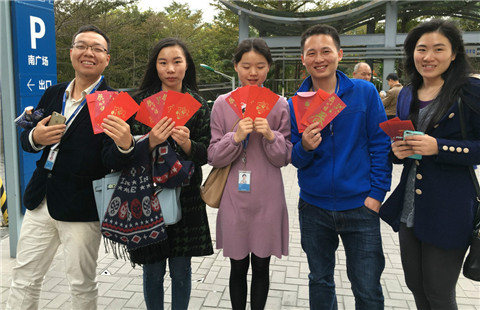China vows win-win cooperation between OBOR, Juncker plan
(Xinhua) Updated: 2016-02-18 10:59BRUSSELS - China vowed to take efforts with Europe to make the synergies between the country's ambitious One Belt One Road (OBOR) initiative and the EU's (European Union) 315-billion-euro investment plan a win-win cooperation.
"It is highly encouraging that China and the EU are getting to grips with the enormous possibilities and opportunities presented by the Belt and Road Initiative," Yang Yanyi, head of Chinese Mission to the EU, told Xinhua.
The Belt and Road Initiative, proposed by Chinese President Xi Jinping in 2013, was widely viewed as a major strategic move for China as it seeks to link China with Europe through central and western Asia via the New Silk Road Economic Belt and connect China with southeast Asian countries, Africa and Europe through the 21st Century Maritime Silk Road.
China and the EU declared to build synergies between the initiative and the European Commission President Jean-Claude Juncker's investment plan during the seventeenth China-EU summit in last June. Three months later during a high-level economic dialogue, Brussels announced that China became the first non-EU country to announce contribution to the Juncker Plan.
This year continued to witness progress on cooperation between the two projects, particularly in prioritized areas including connectivity, financing and digital economy, Yang told a workshop in European Parliament on Wednesday.
With infrastructure as a part of great significance both in Belt and Road Initiative and the Juncker Plan, Beijing and Brussels agreed to further improve their infrastructure links.
In January, the first working group meeting of China-EU connectivity Platform was convened as a follow-up to the MOU on the establishment of EU-China connectivity platform.
They agreed to share information, promote seamless traffic flows and transport facilitation, develop synergies between relevant initiatives and projects, identify cooperation opportunities between respective policies and sources of funding.
The two sides will work to "actively explore business and investment opportunities" and create a favorable environment for sustainable and inter-operable cross-border infrastructure networks in countries and regions between China and the EU, said Yang.
On financing, China has already made public and motivated its interest in participating in the European Fund for Strategic Investment, a core fund worth up to 21 billion euros functioning as the main channel to mobilize the Juncker Plan.
The two sides have so far held three meetings of technical working group on China-EU Cooperation on Investment. During the latest one in January, experts from China's Silk Road Fund, designed in part to foster investment in countries under the Belt and Road Initiative, the European Commission, and the European Investment Bank exchanged views on co-investment vehicle.
"Both sides are committed to developing concrete opportunities for China to invest in the investment plan for Europe," the ambassador said.
On digital economy, the two sides sought to achieve a better synergy between Europe's digital agenda and China's Internet Plus strategy and to benefit the 1.1 billion Internet users in both China and the EU.
They signed a key partnership on 5G telecommunications in September and now, according to Yang, were taking steps to deepen dialogues and cooperation in areas of information and communications technology.
Yang said China's Belt and Road Initiative was "very straightforward", aiming to forge closer economic ties, deepen co-operation and expand development in the Eurasian region, and build a community of common interest.
Under this initiative, "either building a network of road or high speed rail will not just be a matter of financing, rather it calls for local players, communities, national and local governments to participate meaningfully and in a way," Yang noted.
Thus, "only a shared sense of dignity and collectivism could underpin the mutual benefit and trust that promotes sustainable long term cooperation in any domain."
The ambassador called for joint efforts from the EU side for further cooperation. "Only through win-win cooperation can we make big and sustainable achievements that are beneficial to all," she said.
- Belt and Road to save Chinese financial institutions 9.6b yuan in taxes
- Loans supporting Belt and Road Initiative reach $79 billion
- China EximBank steps up Belt and Road support
- Investors see 'long-term benefits' from China's Belt and Road Initiative
- China's Belt and Road initiative will benefit participating countries
- Money laundering claim sends ICBC directors to Spain
- Chinese banks play major presence in Dubai intl financial center: Official
- China January consumer prices up 1.8%
- China producer prices down 5.3% in Jan
- Aston Martin to develop electric car with China's LeEco
- Aviation giants confident in Chinese market's growth potential
- TCM makers welcome state support
- G20 trade ministers to meet in Shanghai in July
















